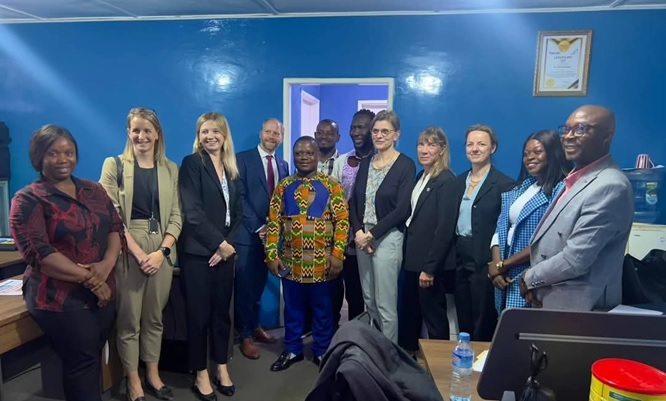MONROVIA, LIBERIA – The United Nations has renewed its call for the elimination of female genital mutilation (FGM), describing it as a horrific act of gender-based violence that continues to harm millions of women and girls worldwide.
Speaking on the International Day of Zero Tolerance for Female Genital Mutilation on Thursday, February 6, 2025, UN Women Country Representative Comfort Lamptey stressed the urgency of eradicating the practice, which she said affects more than 230 million girls and women globally. She described FGM as one of the most brutal manifestations of gender inequality, causing profound and lifelong physical and psychological harm while violating fundamental human rights.
Lamptey emphasized that eliminating FGM is not only urgent but achievable. She called for stronger global movements to dismantle harmful cultural attitudes and gender stereotypes. She also stressed the need for governments, grassroots organizations, and survivors to form robust partnerships to accelerate efforts toward ending the practice by 2030.
The United Nations’ commitment to eliminating FGM was reaffirmed through the Pact for the Future, which was agreed upon by member states last September. This commitment includes tackling negative social norms and gender discrimination to put an end to the practice.
The UN also acknowledged the Liberian government’s efforts in combating FGM. The Resident Coordinator praised Liberia for working with international partners, including the European Union and the Swedish government, to protect women and girls. However, concerns were raised over the resurgence of FGM in some areas, despite a previous ban issued by the National Council of Chiefs and Elders of Liberia after extensive consultations with traditional leaders.
The UN reminded the Liberian government of its 2015 commitment to eliminating FGM under the Sustainable Development Agenda. It also highlighted the need for the passage of the Anti-FGM Bill, which has been in development for years. While welcoming alternative economic livelihood programs aimed at transitioning former practitioners away from FGM, the UN urged Liberia to take further concrete steps by enacting laws that would ensure a complete and permanent ban.
The organization expressed appreciation to the European Union and Sweden for funding initiatives aimed at eliminating FGM in Liberia. It reiterated its call for collective action to ensure a future where no woman or girl suffers from this harmful practice.






